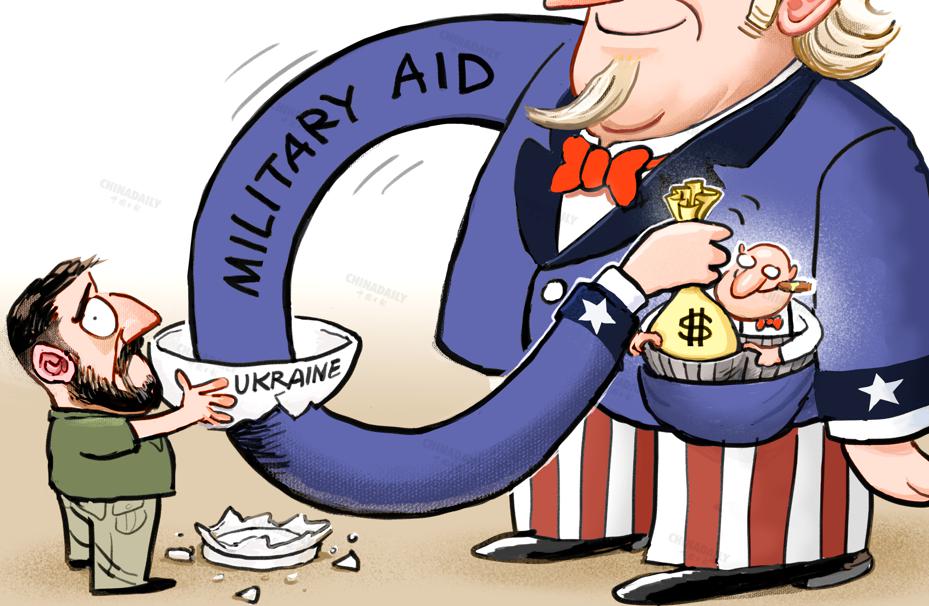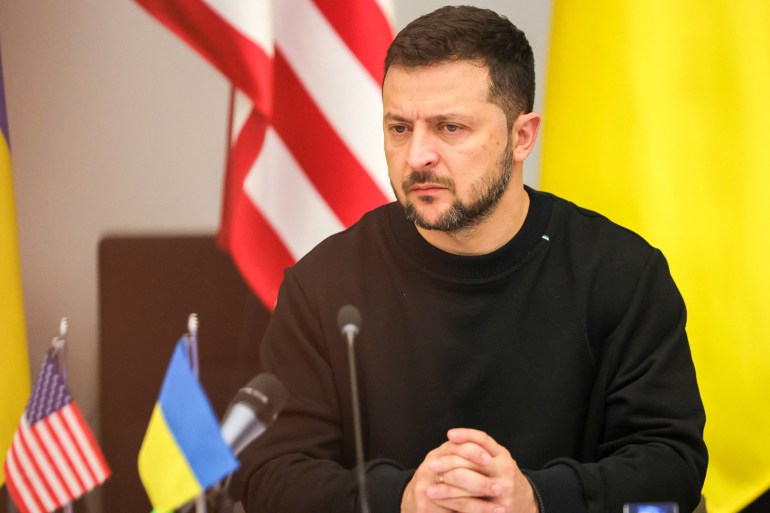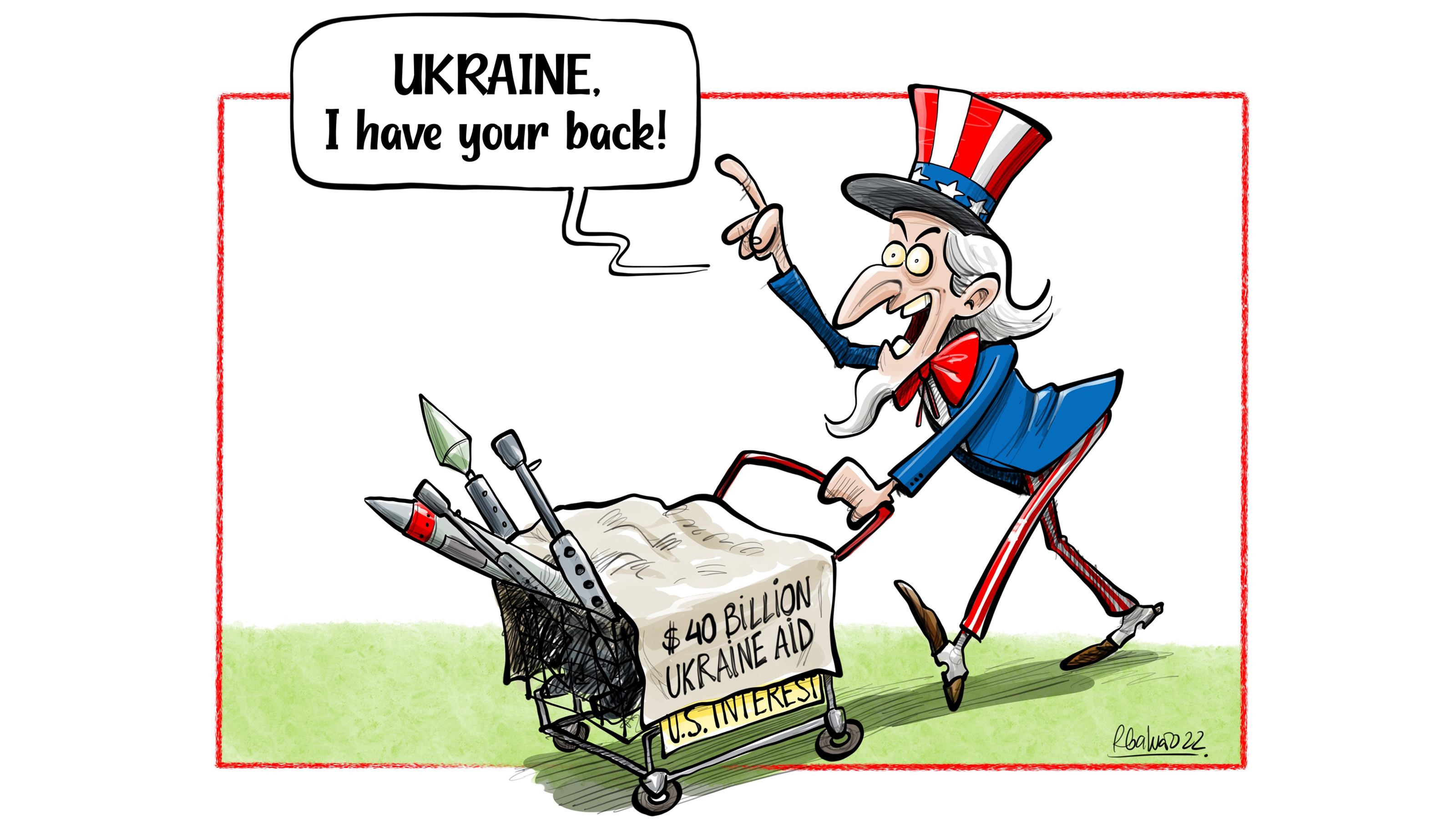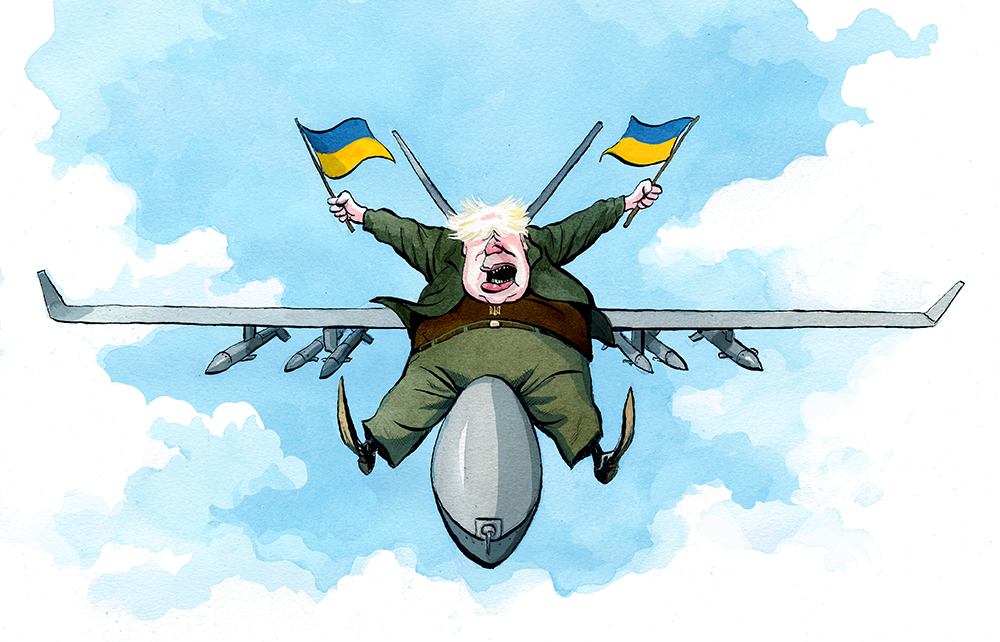Hungary Blocks €50bn Of EU Funding For Ukraine, The United States Too Is Unsure Of Financial Aid; From Global Support To Global Backtracking, Ukraine Backstabbed?
The geopolitical scene surrounding Ukraine is undergoing a critical juncture, with Hungary's recent blocking of €50 billion in EU aid adding complexity to the country's challenges. This obstruction comes on the heels of an agreement to initiate membership talks, highlighting the nuanced dynamics at play. Simultaneously, the Biden administration faces internal hurdles in securing essential funding for Ukraine, as a faction of Republicans opposes additional financial support. The urgency of the situation is accentuated by warnings of impending fund depletion from the administration, creating a precarious scenario for Ukraine's ongoing struggle against Russian forces.

Hungary has thwarted the release of €50 billion ($55 billion; £43 billion) in EU aid designated for Ukraine, mere hours after an agreement was reached to commence membership talks.
Following Thursday’s discussions in Brussels, Hungarian Prime Minister Viktor Orban declared, “Summary of the nightshift: veto for the extra money to Ukraine.” Despite this setback, EU leaders indicated that aid negotiations would resume in early 2024.
Ukraine, deeply reliant on EU and US funding in its struggle against Russian forces, faced the veto from Hungary shortly after the EU leaders greenlit membership talks with Ukraine, Moldova, and granted candidate status to Georgia.
Despite Hungary’s close ties with Russia, Orban did not veto Ukraine’s membership move; however, during the vote, Orban temporarily exited the negotiating room in what officials described as a pre-arranged and constructive manner.
The European Council’s president, Charles Michel, confirmed the unanimous agreement of 26 leaders on the aid package and broader budget proposals, with only Sweden yet to consult its parliament.
Dutch Prime Minister Mark Rutte expressed confidence in reaching a deal in late January, emphasizing that Ukraine has sufficient funds for the next few weeks.
Ukrainian President Volodymyr Zelensky earlier hailed the EU’s decision on membership talks as a “victory,” while Dutch Prime Minister Rutte addressed Orban’s opposition to aid, stating, “We agreed with the 26 countries… Viktor Orban, Hungary, were not yet able to do that.”

The American Hustle
The primary menace to Ukraine materializes within the political dynamics of Washington.
Discussions on the $61 billion US defense aid package for Ukraine are also delayed due to disagreements between Democrat and Republican lawmakers.
A faction of Republicans staunchly opposes any additional funding, while Senate Republicans insist on incorporating it into a more extensive spending package that includes allocations for Israel, Taiwan, and the US southern border.
Senator J.D. Vance, a Republican from Ohio, dismissed the idea that Ukraine could revert Russia to its 1991 borders as absurd.
During an appearance on CNN’s State of the Union, he urged the president to elucidate the rationale behind the $61 billion funding request, questioning its efficacy in comparison to the previously allocated $100 billion.
Concerns persist about Ukraine’s counter-offensive stalling in winter, potentially leaving the country vulnerable to Russian forces.
Zelensky’s wife, Olena, warned of “mortal danger” if Western financial support waned.

Ukraine’s EU Dreams
Ukraine, along with Moldova, applied for EU membership after Russia’s invasion in February 2022, with both granted candidate status last June.
Zelensky celebrated the EU’s announcement as a victory, while Moldovan President Maia Sandu expressed honor in sharing the EU accession path with Ukraine.
White House National Security Adviser Jake Sullivan commended the “historic” move, and German Chancellor Olaf Scholz praised it as a “strong sign of support.”
Orban, however, distanced himself, calling EU membership for Ukraine a “bad decision” in a Facebook video message. He argued against significant EU funds for Ukraine, asserting that it is not part of the bloc.
The decision to open accession talks with Ukraine does not guarantee immediate membership, as the process can take years.
EU candidate countries must undergo reforms adhering to standards from the rule of law to the economy, with Ukraine already praised for completing over 90% of required steps in justice and anti-corruption measures.
Meanwhile, Russian President Vladimir Putin, on Thursday, mocked Ukraine, claiming Western support was dwindling.\

The Viewpoint
In the early stages of Ukraine’s conflict with Russia, a wave of international solidarity swept across the diplomatic landscape.
Countries, united by a shared commitment to upholding democratic principles and sovereignty, vocally supported Ukraine in its struggle against Russian aggression.
However, as the war unfolded, a disheartening shift has occurred, revealing a stark U-turn in the support that once seemed steadfast.
Ukraine, having lost a significant number of its citizens, depleted its resources, and faced mass displacement, finds itself at a crossroads.
The global narrative that initially portrayed Ukraine as a valiant defender of its freedom is now tainted by the bitter reality of bankruptcy and diplomatic betrayal.
The early stages of the conflict witnessed an outpouring of vocal support from the international community, condemning Russia’s actions and affirming solidarity with Ukraine.
Sanctions were imposed, and alliances were reinforced, sending a clear message that the global community stood united against blatant aggression.
However, as the conflict prolonged and Ukraine’s challenges escalated, the international support that once resonated with emphatic declarations began to wane.
Nations, once vocal in their condemnation, are now starting to reevaluate their commitment; however, the toll on Ukraine, both in human lives and economic resources, is failing to elicit the sustained backing it desperately needs.
The plight of Ukraine, grappling with the ongoing war, has laid bare the fickle nature of global alliances. The country, drained and scarred, now faces the harsh reality of financial ruin as some of its erstwhile allies are seemingly turning their backs.
The betrayal is not just diplomatic; it’s a betrayal of the human cost borne by the Ukrainian people, who, in the pursuit of freedom, have paid a devastatingly high price.
The global backtracking on Ukraine’s struggle against Russia raises questions about the reliability of international alliances and the true depth of commitment to democratic values.
It puts into the forefront the need for a more enduring and principled stance, one that doesn’t waver in the face of adversity and continues to provide steadfast support to Ukraine fighting for sovereignty and freedom.
The tragedy unfolding in Ukraine is an example that actions must match words of solidarity, and the global community must not abandon its moral responsibility to those who seek refuge in embracing shared democratic ideals.\

The Last Bit, As Ukraine grapples with multifaceted challenges, from geopolitical dynamics in Europe to the intricacies of Washington politics, the road ahead remains uncertain.
Hungary’s veto and the internal struggles within the US government pose formidable obstacles, emphasizing the delicate nature of Ukraine’s position in the global arena.
The recent EU decision to open membership talks brings a glimmer of hope, but the looming financial crisis amplifies the urgency for swift and decisive international action.
The outcome will not only shape Ukraine’s future but also test the resilience of diplomatic relations and cooperation on the global stage and may rest the question – Has Ukraine been backstabbed?




